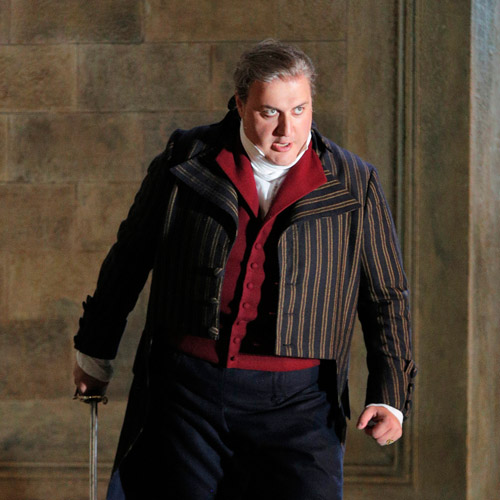
Review
|
13.09.2016
Andrea Chénier – San Francisco 2016
“The performance’s greatest vocal thrills were supplied by Georgian baritone George Gagnidze, whose Gérard blended seething fury and pathos in equal measure. His pivotal aria, “Nemico della patria,” sung with superior diction and palpable emotion, represented the evening’s pinnacle of dramatic power.”
Georgia Rowe, Opera News
“But baritone George Gagnidze as the footman-turned-rebel Carlo Gérard, the third member of the romantically linked trio, made the strongest impression. Gérard serves at the court of Maddalena’s mother and has longed for her since he was young man, but though he finds out that her affections have settled upon Chénier, he manages to set aside his jealousy in the interest of justice. Gagnidze was compelling in an ultimately sympathetic role, and his big, rich voice flowed throughout the house, most effectively in his arresting Act 3 aria “Nemico della patria.”
James Ambroff-Tahan, The San Francisco Examiner
“Georgian baritone George Gagnidze was a powerhouse Gérard; singing with unflagging energy, he made the villainous character the most fully dimensional individual onstage“
Georgia Rowe, The Mercury News
“…and George Gagnidze is a darker-voiced baritone. His performance was memorably powerful as the complicated revolutionary who finally cannot betray his friend or the woman they both love. He brought sympathetic intensity to his big moments.”
Philip Campbell, The Bay Area Reporter
“Here and throughout the opera, George Gagnidze, who was trained in his native Tiblisi, sang with beautiful tone and great passion …”
James Roy MacBean, The Berkeley Daily Planet
“The role of Carlo Gérard is partially based on the life of another real person, revolutionary leader Jean-Lambert Tallien. Giorgian baritone George Gagnidze’s interpretation of Gérard made him the most outstanding artist at San Francisco Opera’s opening night. Gérard is a servant who grew up at the same time as Maddalena, the daughter of the Countess. He sees revolution as his only way out of a life of servitude and at the end of Act I he throws his livery coat to the floor in rebellion. Some of the most famous baritones of operatic history have sung the role, but Gagnidze’s interpretation was the equal of any portrayal from past eras. He has a huge, powerful voice and he offered many shades of rich vocal color when he sang “Nemico della Patria.” Usually playing the villain in opera, Gagnidze here portrayed Gérard as a more sympathetic and ultimately realistic character.”
Maria Nockin, Bachtrack
“Baritone George Gagnidze, one of several contemporary international stars who hail from the Republic of Georgia, was an authoritative Gérard. Recognized as one of the world’s leading baritones, this was his first appearance in the War Memorial Opera House.”
William Burnett, Opera Warhorses
“Georgian baritone George Gagnidze played Gerard, his great aria “Nemico della patria” was with wrenching expression.”
Olivia Hsu Decker, Haute Living
“Twenty years after his debut, Gagnidze mated deep conviction and handsome, strong tone with an economy of gesture and convincing facial expression. As Scarpia-like as he may have been in his lecherous advances on Maddalena, he ultimately succeeded in evoking sympathy for taming his lust in the name of loyalty and honor. But as unified as his portrayal was – his “Nemico della patria” was the best showpiece of the evening – it was not wrenching enough to put the production over the top.”
Jason Victor Serinus, San Francisco Classical Voice
“Gagnidze gave a nuanced turn as the conflicted Gérard.”
The Opera Tattler
“As Gérard, baritone George Gagnidze (principal number three in their San Francisco Opera debut), brought rich dimension and authority to his character, his deep oaky resonance and vocal fluidity increasingly making their mark along the way.”
Operachaser blog
“Baritone George Gagnidze as Gerard had an unwavering, weighty & consistent sound.”
Axel Feldheim, Not For Fun Only blog
“George Gagnidze as Carlo Gerard was an outstanding remorseful revolutionary. His voice is not the largest baritone around, but it has the right sound for Gerard. Gagnidze delivered a forceful and nuanced reading of ‘Nemico della patria’ which was very well appreciated by the audience. All the notes were there for a part that is as difficult as many of Verdi’s great baritone roles.”
Neil Kurtzman, Medicine and opera blog
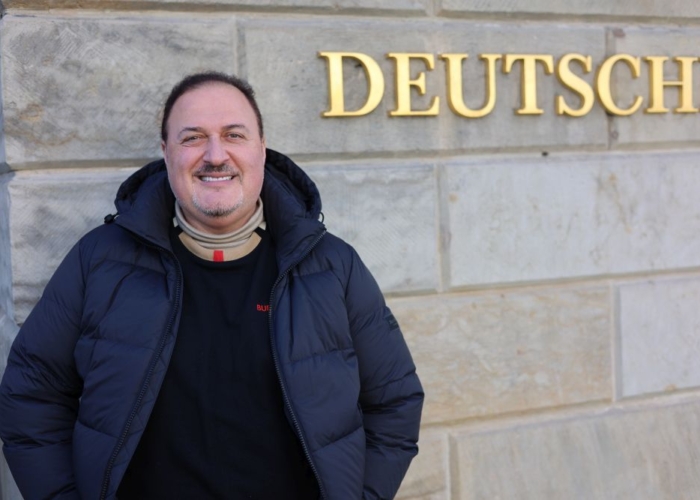
Review
|
01.12.2025
Press review “Khovanshchina” Staatsoper Berlin
Following the rave reviews for Claus Guth’s new production of Khovanshchina, featuring George Gagnidze as Boyar Shaklovity at the Staatsoper Unter den Linden in June 2024, the revival this November also received excellent notices internationally:
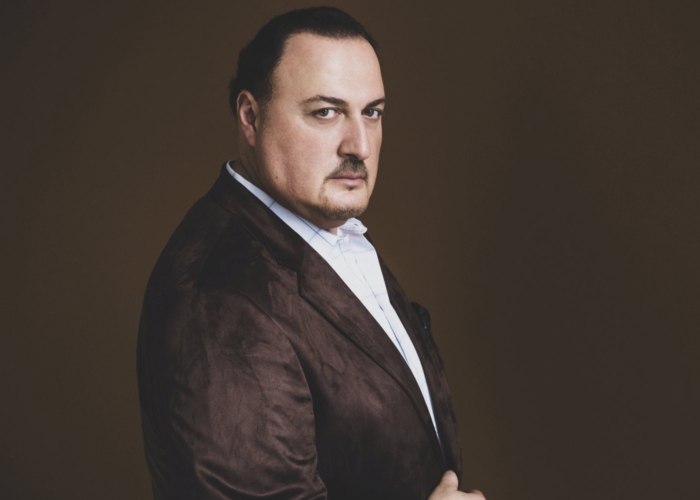
Review
|
08.11.2025
Interview with Italian magazine Amadeus
For their November 2025 issue, Italian magazine Amadeus features an interview with George Gagnidze by Alessandro Cammarano. In the 2025/26 season, George Gagnidze takes on three major roles in Italy: after his acclaimed performances as Gianciotto in Francesca da Rimini at the Teatro Regio Turin, he will also appear in the title role of Macbeth at the Opera Carlo Felice in Genoa.
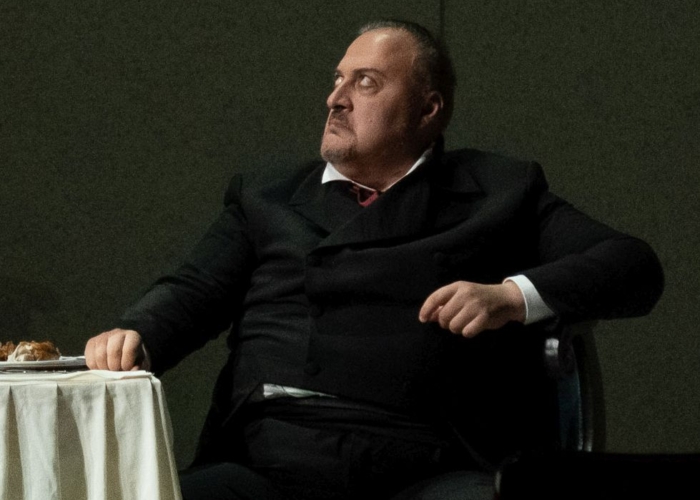
Review
|
16.10.2025
Reviews “Francesca da Rimini” in Turin
“George Gagnidze as her husband Gianciotto was excellent...” Paolo Gallarati, La Stampa
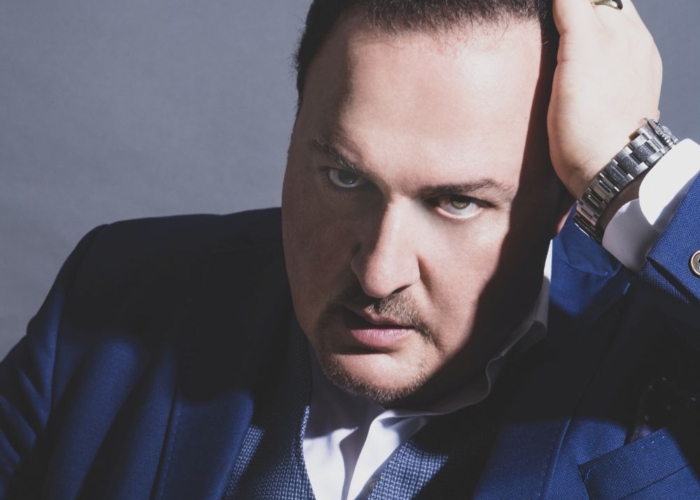
Review
|
10.10.2025
“L’Italia è la culla del mio repertorio”. L’intervista
di Giovanni Zambito - Il baritono George Gagnidze, tra le voci verdiane più autorevoli della scena lirica internazionale, si prepara a una nuova intensa stagione artistica che lo vedrà protagonista in Italia e all’estero. Dopo quasi 150 recite al Metropolitan di New York, Gagnidze tornerà nel Belpaese per tre appuntamenti di grande rilievo: Francesca da Rimini al Teatro Regio di Torino, Macbeth al Carlo Felice di Genova e Nabucco al Macerata Opera Festival. Parallelamente, sarà impegnato in importanti produzioni in Germania e Spagna, tra cui Der fliegende Holländer.
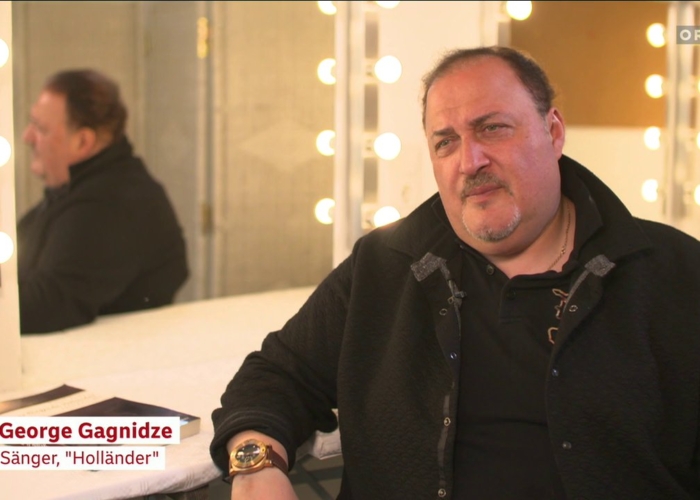
Interview
|
04.07.2025
Interview for ORF TV
In the lead-up to the premiere of Der fliegende Holländer at the Oper im Steinbruch Festival, George Gagnidze spoke with ORF TV about his role and the production in St. Margarethen. The interview, along with rehearsal footage, can be viewed here:




